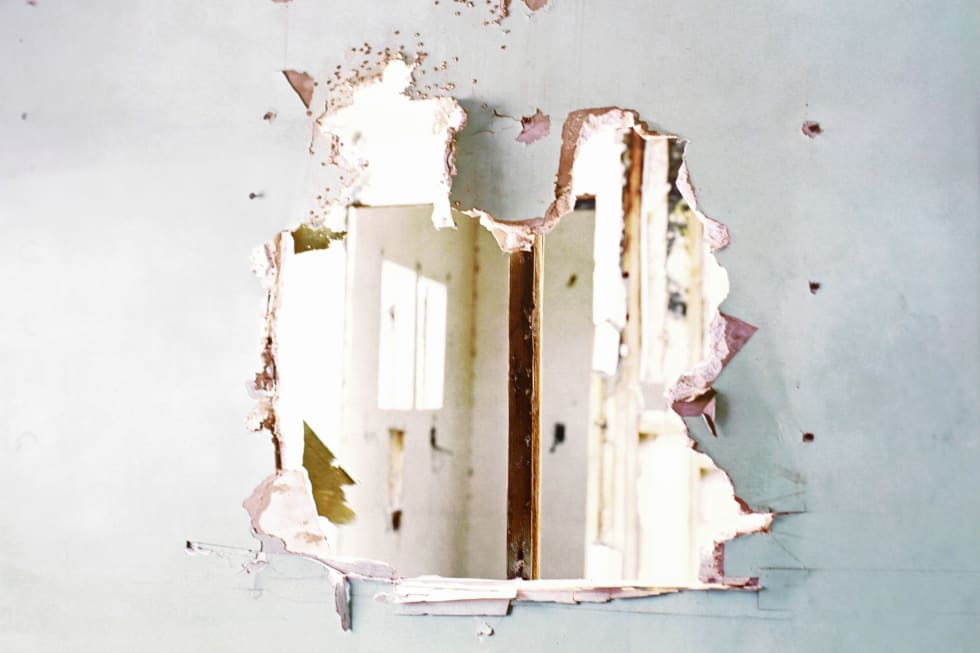How to Get Your Security Deposit Refunded
Moving can be very exciting, but it can also be pricey. If you are moving out from an apartment, you probably want your entire security deposit back as soon as possible in order to cover moving costs, purchase new furniture or give it to your new landlord. To help avoid unnecessary stress, follow these simple tips below to get your security deposit back.
Before Moving In
Read your lease. Finding a perfect apartment might feel like falling in love — it seems perfect for you and you swear you will never want to move out. However, sometimes the unexpected happens - you get a new job and have to move cross country, your significant other wants you to move in, or your family is about nine months away from adding its newest member and you need more space. What seemed like the perfect apartment before is no longer the best fit for you. If you don't want to end up with a broken heart and an empty wallet, be sure to carefully read the lease terms of your rental agreement. Pay attention to the fine print, as it usually contains a clause on terminating your lease with requirements you need to follow to get your deposit refunded. Many leases have a financial penalty for breaking your lease early, and the funds to pay for this could come out of your security deposit.
Initial inspection. Before you move in, create a checklist of all the different locations in your new apartment you need to inspect for damage or wear and tear. Filling out a move-in checklist sounds like a chore, but in this case it’s better to be safe than sorry to avoid paying for something you didn’t do. During your walk-through of the rental unit carefully document all defects and marks no matter how insignificant they seem. And don't forget to take photos for your records.
Being a Good Tennant
Keep your apartment clean. It might seem obvious, but you have to keep your rental in good shape if you ever want to see your security deposit again. If you clean on a regular basis, you won't have to deal with old ground-in stains two days before your move-out date.
Avoid water damage. Water damage is tricky. If your pipes are leaking, you have to immediately report it to your landlord and they will fix it. However, if your failing to wipe water off the linoleum or the walls causes stains or even mold, that's on you.
Don't drill unnecessary holes. Before you drill any holes, think twice—do you really need them? Some rental properties have cinder-block or plaster walls that can be severely damaged by careless drilling. If you wish to decorate your walls with some art, opt for adhesive hooks and tape.
Maintain the carpet. Professional carpet cleaning can be very expensive, so be sure to remove stains as soon as they appear. If you have pets and/or kids and know that the risk of damaging the carpet is pretty high, it might be a good idea to choose an apartment with hardwood floors or tile.
Communicate with your landlord before making any changes. If you want to repaint your living room or lay new tile (especially if your space is small and you want to make it look bigger), talk to your landlord before embarking on the home improvement journey. If you are lucky, they might even cover some of your projects.
When Moving Out
Read up on landlord-tenant laws and regulations. There are a lot of reasons for your landlord to withhold your security deposit. They include:
- Unpaid rent
- Unpaid utilities
- Damage to property
- Unpaid monthly municipal permit fees
Give your notice in advance. The clause on terminating your lease can be found in your rental agreement and should contain the notification timeframe for your move-out date. In most cases, you have to notify your landlord or property manager 30 days prior to terminating the lease. Don't rely on words and give your notice in writing. Failure to deliver the notice within the timeframe outlined in the rental agreement might cost you one month's rent.
Put the unit back in its original condition. Remember the good ol’ "spot the difference" game? Well, the better you are at it, the higher are your chances of getting that security deposit returned.
Repaint the walls. If at one point in life you were into trendy colors and painted all walls "millennial pink," you'll have to paint them back the dull beige it came as, unless your landlord already approved the new color.
Remove all nails and screws from walls and ceiling. While some landlords might disregard a few small nail holes, don't leave it to chance and spackle them up.
If you broke it, replace it. It's just common sense that you have to replace or fix everything you broke and damaged. That includes loose shelves and broken tiles. There is a difference between normal wear and tear, and neglect.
Scrub the oven. You would be surprised how many tenants move out of their apartments without cleaning all the appliances and bathroom. If you don't want to see a deep cleaning fee on the list of security deposit deductions, do the cleaning yourself.
Inspect the unit with your landlord or property manager before the move-out date. It's always a good idea to set up a move-out inspection with your landlord ahead of time as they might point out things you overlooked.
Don't confuse last month's rent with the deposit. It's surprisingly common for tenants to confuse security deposit with last month's rent. Unless previously agreed upon with your landlord, you have to pay last month's rent separately from your security deposit.
Leave your forwarding address. Make it easy for your landlord to return your security deposit. If you forget to give them your new address, you have only yourself to blame.

If the landlord refuses to return your security deposit
Ask for a list of deductions. Your landlord has to provide an itemized statement as to how they applied the deposit. The list should contain items such as rent, cleaning, repairs, the amount of deduction, and the balance left of the deposit. All the repairs and cleaning should be supported by receipts. The list has to be provided by your landlord within a certain number of days after the move-out date, which varies state to state. For example if you live in DC, your landlord has 45 days to either issue a refund or send a notice of intention to withhold. At the same time, landlords in Miami only have 14 days to return your money or give a notice of withholding intent and amount.
Send a demand letter with certified mail. If you tried negotiating for the return of the security deposit with your landlord but they didn't budge, you have to write a demand letter. The letter should state the amount you request to be returned and the reasoning behind it. No matter how upset you are, try to avoid getting emotional and just state facts. It's a good idea to cite state security deposit laws, attach photo evidence, emails and receipts. Send the letter with certified mail with a request for return receipt.
Get legal advice. If you haven't heard back from your former landlord or received your money back, it's time to seek legal advice. If the law is on your side, you can file a lawsuit in small-claims court. Although you don't need a lawyer in small-claims court, it might be a good idea to get one, and you can include legal fees in your lawsuit. In some cases, you can sue for extra damages if the landlord acted in bad faith.
If you carefully follow the above-mentioned tips, you shouldn't have any trouble getting your security deposit refunded. At the end of the day, planning ahead, properly communicating with your landlord and staying up-to-date with local landlord-tenant laws and regulations will be the key to getting back your hard-earned money.
Share this Article

